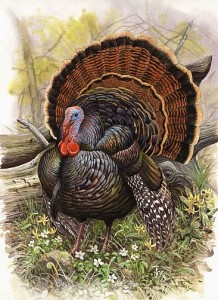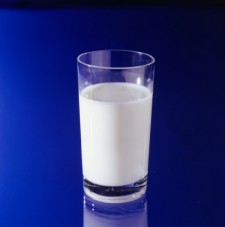
Two new milk advertisements by the dairy industry have been making their rounds on American television. Both ads suggest that drinking a glass of milk before bed will prevent awakenings in sleep and give you better dreams. Unfortunately, the evidence for a good night’s sleep thanks to a glass of milk is a little thin.
Or should I say skim?
Here’s one of the ads:
How could milk give you longer dreams?
To do so, the properties of milk would have to have an effect on the structure of sleep, by increasing the length of REM sleep (dreaming sleep), for example, or delaying a shift into wakefulness. There’s no clinical study that’s ever looked at this correlation directly.
However, several studies have looked into the effects of a key ingredient found in milk: melatonin, an amino acid that regulates the sleep-wake cycle. A 2000 study published in the journal Sleep and Hypnosis found that taking 6mg of melatonin at night for two weeks significantly increased bizarre dreams for college students.
The second milk ad really seems to key into the bizarreness of dreams. Check it out.
By the way, in dream research lingo, bizarreness is often another way of saying creepy and nightmarish. Bizarre dreams are not necessarily populated by milk goddesses.
There’s also some clinical studies on larger doses of melatonin (over 5mg), which have been linked with increasing REM sleep in general, at least in some people, such as patients who are suffering from REM sleep deprivation.
On a purely anecdotal level, I know of many dreamers who have reported vivid, nightmarish and lucid dreams after taking very high doses of supplemental melatonin (over 10mg. It’s not safe, don’t do this).
So, at first blush, it seems there may be something to the dreamy effect of milk.
Tryptophan and Melatonin

Besides melatonin, milk contains trace amounts of tryptophan, which is another amino acid that’s found in a lot of foods, including most meats as well as scores of seeds and nuts.
Tryptophan is synthesized in the brain as serotonin, and finally melatonin.
Because of this relationship, tryptophan can also have a drowsiness effect when a lot is consumed at the right time.
But here’s the rub:
Compared to other foods, milk doesn’t really contain much tryptophan. Half a glass of milk (4 oz) contains about .08grams of tryptophan, compared with the same or equivalent amount of soybeans (.59 gram), spirulina (.9 gram) and dried white egg (1gram).
According to sleep doctor Michael Breus, you’d need to drink a gallon of milk for the tryptophan effect. So you’ll be interrupting your dreams by going to the bathroom every 20 minutes.
Milk doesn’t have much melatonin either; certainly much less than those 5mg mega-doses you can get from over-the-counter supplements.
Creepily enough, there is a new kind of milk currently being tested called night milk, which is taken from cows at night that are fed a lot of tryptophan in their diets. It’s patented and supposedly contains over 25 times the melatonin of ordinary milk. It’s pretty controversial. Still, even “sleepytime milk” has a hundredth of a typical dose you’d get from a typical melatonin supplement.
Drinking Milk Alone Won’t Do the Trick

In any case, the amount of sleep-inducing amino acids that you consume before bed is not the only issue here.
To affect sleep, tryptophan needs to be absorbed more readily than other amino acids, and the best way to do this is to eat foods with complex carbohydrates, which cause an insulin spike to clear out the sugars and those competing amino acids.
Guess what?
Milk by itself doesn’t have many complex carbs; it’s mostly simple sugars. So, to get the (ridiculously small) tryptophan effect from milk, you’d need to take it with a bowl of cereal or with some toast.
This is a good idea anyways, as eating a small, healthy snack an hour before bed can help you lose weight.
Milk’s secret weapon?
There’s one more potential for milk to help with falling asleep.
Milk contains some casein proteins, which may have a slight relaxation effect. Four of the six proteins in milk are casein proteins; the others are whey.
Athletes and bodybuilders swear by protein shakes high in casein to help with slowing muscle atrophy during sleep, although I don’t know if this use has been clinically demonstrated.
According to some recent European research, casein proteins may lower cortisol levels and blood pressure, both of which are helpful for drifting off to sleep more quickly.
Still, there’s a lot of other dairy products that have more caseins proteins than milk –most hard cheeses and cottage cheese for example.
Got Curds?
Speaking of curds, there’s actually some evidence for the effect of fermented milk on sleep health. In fermented milk, the bacteria Lactobacillus helveticus may help with falling asleep and also lower blood pressure.
Lactobacillus helveticus is the bacteria that is responsible for making cheese, and as a probiotic it’s also been linked to preventing infections and improving immune response. So that’s another reason to have cheese rather than milk before bed (because those bacteria are still in the cheese–it’s a live food).
Go for cheddar, mozzarella or Swiss cheese. Even better, make some cheese toast, and get your complex carbs too.
Seriously though, did I mention my new book yet?
 Drinking milk is probably not going to transform your dream life. But a glass of milk may be a healthy part of a bedtime snack that could make it easier to fall asleep. Make it a warm glass of milk if you want to add that special “just like Grandma did” effect.
Drinking milk is probably not going to transform your dream life. But a glass of milk may be a healthy part of a bedtime snack that could make it easier to fall asleep. Make it a warm glass of milk if you want to add that special “just like Grandma did” effect.
Do you really want to remember more dreams and get better sleep?
Check out my ebook Dream Like a Boss. It costs less than a $5 milkshake.
never to date tried any supplement to affect dreaming — in near future will, but it will be either calea z., amino acid blend, or galantamine/choline.
of those three, Ross, the galantamine/choline combo is the most potent I’ve ever seen. check out my review here:
http://dreamstudies.org/galantamine-review-lucid-dreaming-pill/
I can agree with the galantamine/choline combo, it was potent for me when I followed the process Ryan describes.
I’ve never experienced anything like milk before bed and dreams; however I have tried placing gemstones under my pillow; a lot of them in fact.
It produced a dream of near death and meeting with angelic figure, something I am not wanting to repeat.
On a side note, I recently stopped drinking 2% and whole milk and switched to Almond milk. My skin is looking amazing without all the extra milk additives.
interesting. I’ll keep that in mind! aprotropic objects are a big interest of mine, although these days the only thing I have been putting under my pillow has been my iphone (to hide it from my toddler). 🙂
Great article, Ryan!
I’ve tried melatonin to improve my sleep, in various doses and for various lengths of time and it’s had little or no discernable effect on me.
I’ll take cheese over milk any day (or night). In fact, cheese is often a midnight snack for me, but again, I can’t say that it’s ever effected my sleep or dreams.
I’ve not noticed anything strong with melatonin myself, but I also haven’t ever taken a big dose (5mg or more). that apparently is what really gets the serotonin kicking. I had a brief stint with trying 5HTP for vivid dreams but it just gave me the night sweats.
This has been my experience in the past:
“… But a glass of milk may be a healthy part of a bedtime snack that could make it easier to fall asleep. Make it a warm glass of milk if you want …”
I cannot recommend consuming dairy on any regular basis. Living in New York State, I make my exception with Pizza. Dairy, in all it’s forms but especially whole milk, just seems to cause fat/flab and sinus congestion.
In my personal experience, here is how I can make myself have the best, most vivid dreams:
-Eat mostly fruits and vegetables that day
-Be mostly active, or at least get a good workout in.
-Get some fresh air and sunlight, as much as possible.
-Meditate for at least 20 minutes that day.
-Read for an hour before going to sleep at night.
-Keep off the computer/cell phone for at least an hour or two before going to sleep (this is a tough one for me)
-Vitamin C supplements tend to increase the vividness of my dreams, especially when combined with fruit and herbal teas.
-Avoid smoking anything in the hours before sleeping.
This is all anecdotal, of course.
Ryan Hurd, feel free to e-mail me if you wanna pick my brain on anything during your research, I’d be happy to help you out. I have had some of the most vivid and powerful dreams of anyone I know, and I can only imagine what kind of fascinating dreams you’ve had that inspired you to create this website. Keep doing what you’re doing.
I love dairy milk and cheese, but because I’ve had to lower my cholesterol I’ve had to substitute with Soy or Almond milk. Since I’ve been drinking Almond milk I believe I dream more frequently than when I drink Soy or regular milk. For me this is good news, because I’m a frequent Lucid Dreamer and to have more frequent vivid dreams means a greater chance of lucidity. I noticed that when I stopped drinking Almond milk and switched to Soy after a few days my early morning dreams became almost null.
really interesting! I also switched to almond milk exclusively (after drinking cows milk for years) and my dream life has also exploded. however I’ve made a lot of dietary changes — I’m basically doing a Paleo diet (although its more like a Mesolithic diet actually) — no domesticated grains, no dairy. whatever it is… I’m dreaming more. I’ll have to blog about this and see if anyone else has noticed something similar…